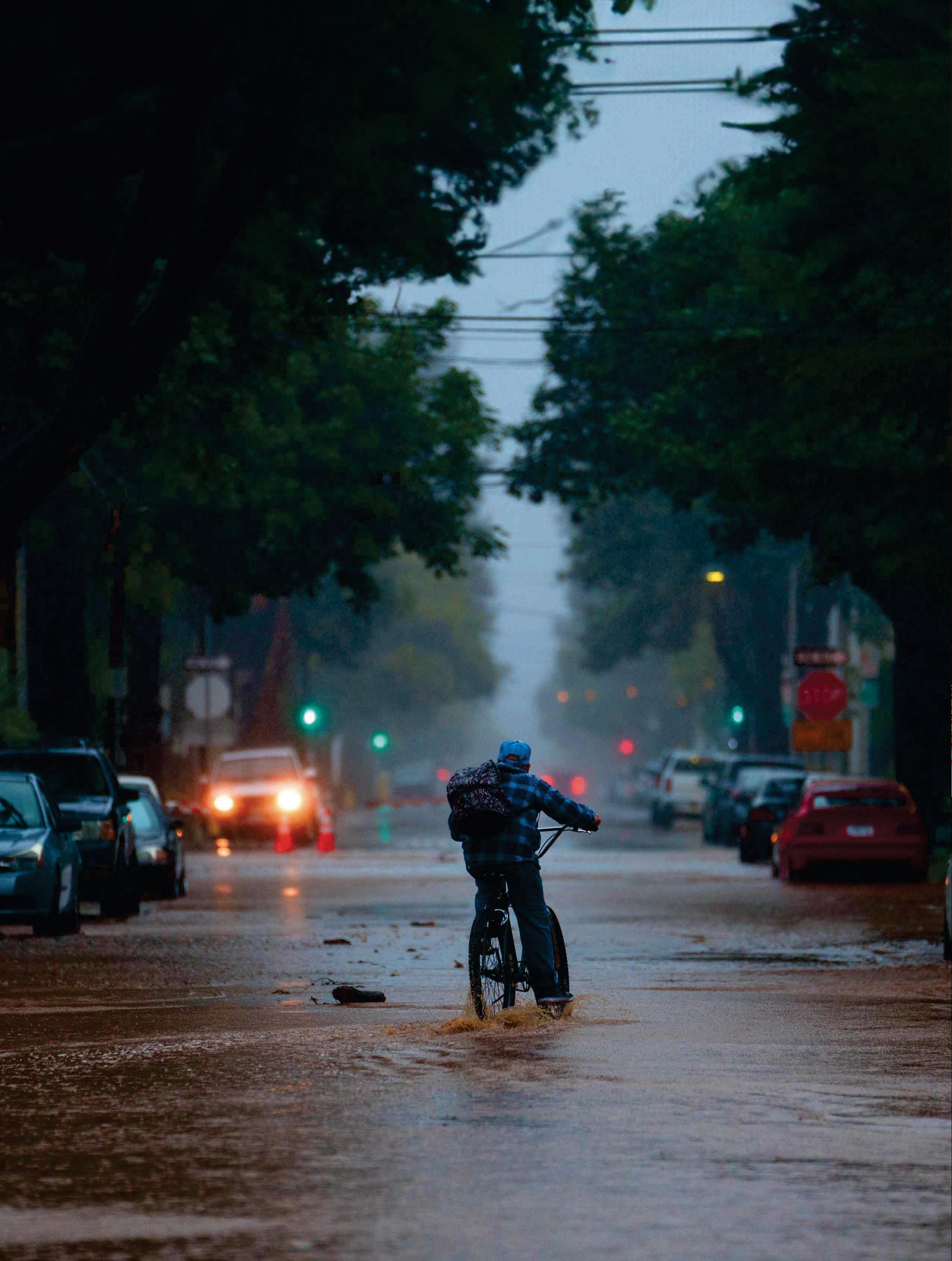Try GOLD - Free
Welcome to WHIPLASH Weather
BBC Science Focus
|October 2025
Weather patterns are see-sawing from one extreme to another faster and more frequently than ever before, with increasingly deadly consequences. And the phenomenon is coming to places you wouldn't expect

California is no stranger to wildfires, but January 2025 saw some of the worst yet. Supercharged by global heating, more than a dozen fires raged across the Los Angeles metropolitan area and around San Diego, driven by hot Santa Ana winds reaching speeds of 160km/h (100mph).
Hundreds of thousands of people were evacuated and more than 16,000 homes and other buildings were destroyed – some owned by celebrities, including Billy Crystal, Jeff Bridges and Anthony Hopkins. The fires killed 31 people, but another 400 or so are thought to have died due to indirect effects of the fires, most notably the poor air quality.
While the fires took just a few weeks to do their worst, it had taken years to set the stage for their appearance. For the last decade or so, extreme drought was the order of the day across much of southern California. But then the weather flipped, bringing exceptionally heavy rainfall in 2022 and 2023, which resulted in an explosion of growth across forest, brush and grassland.
Then, in 2024, conditions flipped back again, bringing California's hottest summer on record. This was followed by extremely dry weather in the autumn and early winter, which saw next-to-no rain in downtown LA. By January 2025, there was a huge quantity of tinder-dry vegetation, just waiting for a spark to launch a conflagration and, inevitably, it came.
What made the fires even worse is the fact that, for every 1°C (1.8°F) the planet heats up, the atmosphere is able to absorb seven per cent more water. In 2024, the world was more than 1.5°C (2.7°F) hotter than pre-industrial times. Hotter air can hold more water, so as the temperature climbs, the atmosphere acts like a sponge, sucking even more moisture out of vegetation and soils. This means that when the rain does eventually fall, it's much more intense, which in turn, encourages more plant growth that provides fuel for fires.
This story is from the October 2025 edition of BBC Science Focus.
Subscribe to Magzter GOLD to access thousands of curated premium stories, and 10,000+ magazines and newspapers.
Already a subscriber? Sign In
MORE STORIES FROM BBC Science Focus

BBC Science Focus
World's biggest cobweb is home to 100,000 spiders
Spiders don't normally create such large colonies, so there's no need to worry about finding one in your basement
1 min
February 2026

BBC Science Focus
A dementia vaccine could be gamechanging – and available already
Getting vaccinated against shingles could protect you from getting dementia, or slow the progression of the disease
1 mins
February 2026

BBC Science Focus
DATA IN SPACE
An unusual spacecraft reached orbit in November 2025, one that might herald the dawn of a new era.
7 mins
February 2026

BBC Science Focus
Climate change is already shrinking your salary
No matter where you live, a new study has found warmer temperatures are picking your pocket
4 mins
February 2026

BBC Science Focus
A MENTAL HEALTH GLOW-UP
Forget fine lines. Could Botox give you an unexpected mental health tweakment?
3 mins
February 2026
BBC Science Focus
Most people with high cholesterol gene don't know they have it
Standard testing struggles to detect the condition
1 mins
February 2026

BBC Science Focus
HOW CAN I BOOST MY IQ?
If you're serious about getting smarter, it's time to ditch the brain-training apps
4 mins
February 2026

BBC Science Focus
Humans are absolutely terrible at reading dogs' emotions
Think you can tell how our furry friends are feeling? Think again
1 mins
February 2026

BBC Science Focus
HOW TO TEACH AI RIGHT FROM WRONG
If we want to get good responses from AI, we may need to see what it does when we ask it to be evil
3 mins
February 2026

BBC Science Focus
What Australia's social media ban could really mean for under-16s
Many people think social media is bad for our kids. Australia is trying to prove it
5 mins
February 2026
Listen
Translate
Change font size

